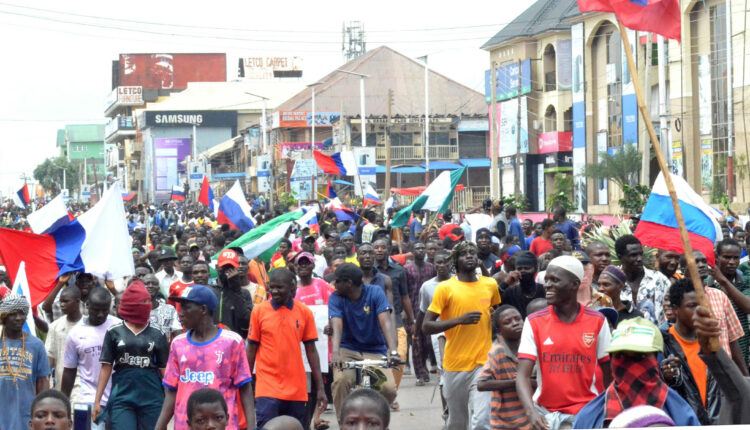The #EndBadGovernance protest, which culminated in a one-million-man march over ten days, has sparked significant debate about its impact and effectiveness. The nationwide demonstrations were triggered by economic hardships exacerbated by the removal of fuel subsidies and the decision to float the Naira, which critics argue worsened the country’s economic situation.
Protest’s Impact and Outcomes
While the protest succeeded in drawing attention to severe economic and governance issues, its success has been marred by violence and controversy. Reports indicate that the protest resulted in at least 14 deaths across several states, with a significant number of arrests and injuries.
In response to the protests, President Bola Tinubu urged demonstrators to suspend their actions, promising that his administration’s efforts would soon bear fruit. However, he did not address the specific demands of the protesters, which included reversing the fuel subsidy removal, halting electricity tariff hikes, and addressing currency devaluation.
Human Rights Activist’s Perspective
Mark Adebayo, human rights activist and National spokesperson for the Coalition of United Political Parties (CUPP), provided insights into the protest’s effectiveness. He acknowledged that the protest communicated the grievances of the citizenry to the government, making the leadership uneasy and highlighting the need for proactive engagement with the populace.
Adebayo criticized the government’s approach to addressing the demands, suggesting that the protest’s lack of immediate tangible outcomes may lead to further unrest. He argued that cost-cutting measures, such as reducing excessive government spending and bloated salaries, could provide immediate relief and demonstrate genuine concern for the public’s welfare.
Ethnic Divisions and Regional Responses
The refusal of southeastern states to join the protest has been interpreted by some as an indication of ethnic division. Adebayo noted that the deep-rooted ethnic divisions in Nigeria have long affected national unity and highlighted the need for a leader who can unite the country and address these issues. He also criticized the actions of some groups within the southeast for exacerbating tensions with inflammatory rhetoric.
Looking Ahead
The aftermath of the #EndBadGovernance protest raises questions about future protests and the potential for spontaneous unrest. Adebayo warned that unchecked protests could lead to uncontrolled violence and further societal damage. He stressed the importance of competent and patriotic leadership to address Nigeria’s challenges and bridge ethnic divides.
The protest has underscored the need for meaningful dialogue between the government and its citizens and has highlighted the deep-seated issues affecting Nigeria’s socio-economic landscape. The future of Nigeria’s governance and public response to economic policies will likely hinge on the government’s ability to address these concerns effectively and transparently.
